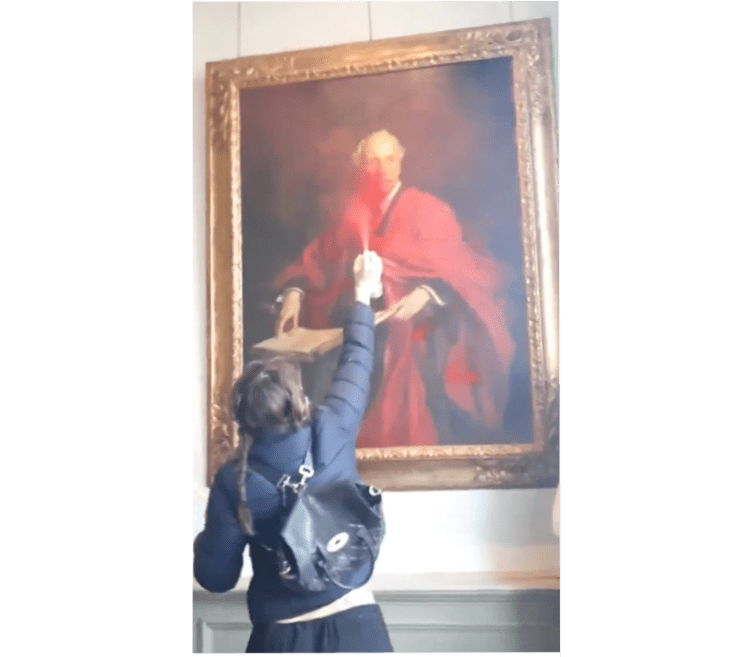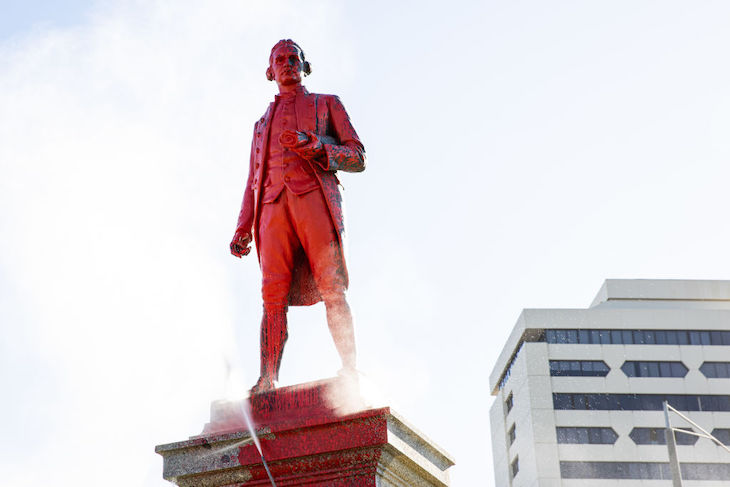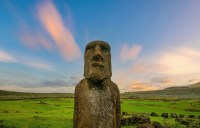Cambridge has made a mistake in returning to the tribe that made them some spears collected by Captain Cook’s men in 1770. It is always dispiriting to write something and then discover that no one with the power to act has paid any attention. Last year, I complained on Coffee House that Trinity College, Cambridge and the Cambridge University Museum of Archaeology and Anthropology were about to make an ill-conceived mistake by repatriating these spears. It seems no one was listening.
The truth is that these spears – which were presented to Trinity in 1771 – would not have survived had they not been kept safe in Cambridge. These were not ceremonial wands or armaments but humble fishing sticks, crowned with finger-like barbed prongs; they were in everyday use among the Gweagal clan members who lived around what is now Sydney. Although Cook’s sailors seized about 40 of these sticks, thinking at first that they were weapons, only four have survived from this first encounter between British explorers and the peoples of Australia.
These spears would not have survived had they not been kept safe in Cambridge
What is special is their association with Cook’s voyage, which makes them part of British history, reaching back to a time before the colonisation of Australia was contemplated. It was already regarded as a dry, impoverished land; earlier Portuguese and Dutch visitors had decided it could offer very little – contrary to popular assumption, Cook did not discover Australia, and in 1770 he was actually looking for the ‘Southern Continent’ that was thought to lie to its south.
In fact, as Nicholas Thomas, the curator of the museum in Cambridge has noted, ‘they are the first artefacts collected by any European from any part of Australia that remain extant and documented’. This statement underlines their importance in the history of Europe rather than Australia, where they had no special significance, and were just simple fishing sticks. Nor was this a colonial invasion. The Gweagal were not particularly interested in making contact with the British expedition, and Cook only spent eight days in this area. A member of his crew wrote: ‘During our stay, we saw parties of Indians several times, but could not come near enough to make any kind of friendship with them but they always made signals for us to be gone.’
Yet the comments made now about the spears point in a different direction. Professor Thomas says that the spears ‘reflect the beginnings of a history of misunderstanding and conflict. Their significance will be powerfully enhanced through return’. The Minister for Indigenous Australians echoes Professor Thomas when she says ‘the return of the Gweagal Spears is a significant step forward on the journey towards reconciliation and truth-telling.’ But in a way it is untruth-telling, because Cook’s project was scientific rather than colonial.
The Gweagal community has expressed its thanks with a short-term gift to Cambridge; the Museum of Archaeology and Anthropology is hosting a loan of contemporary Aboriginal spears ‘to show how traditional knowledge has been passed down, while adapting to new technologies.’ But that was not why the original spears were on show. They were there to illustrate an important moment in the expansion of European knowledge about the Pacific Ocean, associated with one of Britain’s most revered explorers.
The reassessing of past figures such as Captain Cook was expressed very differently, once again in Trinity College (on a staircase leading to the Wren Library), when a member of ‘Palestine Action’ was filmed in March spraying red paint on the college’s portrait of Arthur Balfour. She then took a sharp knife to the painting and attempted to rip it to shreds. Balfour, a Trinity alumnus, was Chancellor of Cambridge University and was painted by the fashionable Hungarian Jewish artist Philip de Laszlo in 1914, three years before the Balfour Declaration was published and the idea of establishing a national home for the Jewish people in Palestine was mooted in studiously vague terms.
The portrait attack seems to have been a carefully planned operation, as the area where the painting hung was not visible on CCTV, nor was the painting itself covered by glass. A small group from ‘Palestine Action’ was demonstrating outside the Senate House that day, within sight of CCTV; and the rear view of the culprit shows that she was wearing an expensive and fashionable backpack.

Have the police arrested anyone? If not, it beggars belief. The response of Trinity to this act of overt vandalism has certainly been extraordinarily soggy: ‘a painting’ has been damaged, it was announced, without daring to specify whose portrait this was. Apparently it can be restored, though at very significant cost to the college, as the knife used to slash it was so sharp that it cut the canvas cleanly, and varnish protected the areas splashed with red paint. The lame response of the college to this outrage plays along with those who are trying to cancel Balfour, all the more so if, as has been suggested, his painting might henceforth be consigned to a store-room.
In these two cases, the Australian spears and the Balfour portrait, the richest and arguably the grandest Cambridge college is giving way to fashionable but damaging ideologies that distort the way we look at the past. Cook stands condemned. Dead Trinity alumni beware: not just Balfour but Dryden, Newton, Byron, Melbourne, Macaulay, Tennyson and Baldwin.
To repeat fundamental points I made last year about the spears: these objects provide important testimony to growing European knowledge of the world in the Age of the Enlightenment. The extraordinary story of the Australian spears is a British story too, and virtue signalling of this sort does more to destroy knowledge than add to it. Dispassionately observing the historical context, whether of the Cook expeditions or of the Balfour Declaration, is the best way to combat the vacuous ideology that is becoming pervasive, not least in our universities. The spears should never have been returned.







Comments
Comments will appear under your real name unless you enter a display name in your account area. Further information can be found in our terms of use.